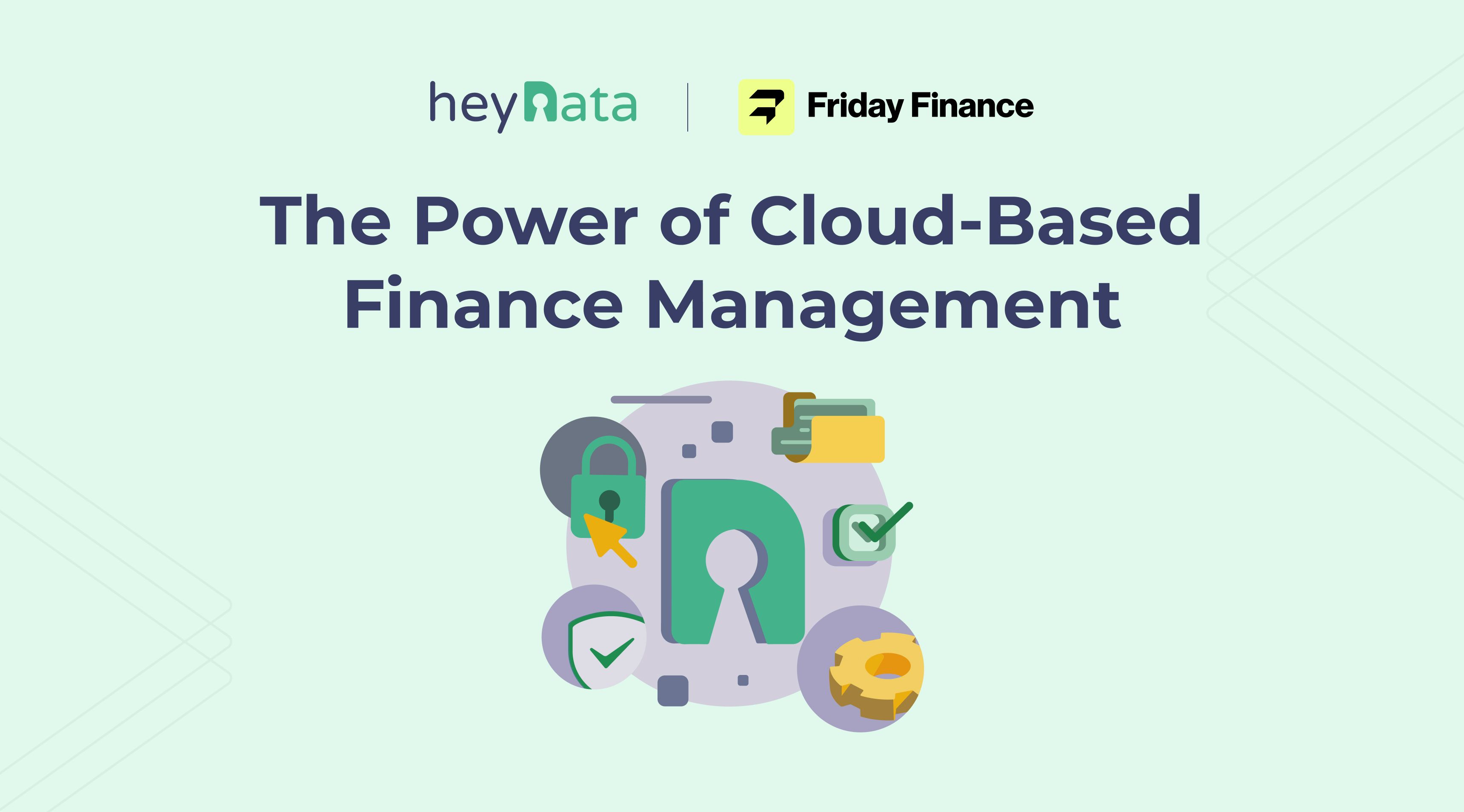
The Power of Cloud-Based Finance Management

Finance management is a crucial aspect of running a successful business. It refers to the process of overseeing and managing the financial operations of a business, including business banking such as business and corporate cards, as well as finance management software for payment approvals, spend management, planning, and accounting preparation.
Challenges in Financial Management
Business owners and financial managers need to keep track of multiple bank accounts, make timely payments, and ensure that their financial data is secure. However, traditional methods can be time-consuming, inefficient, and prone to errors. This is where cloud-based finance management comes in, providing a modern and efficient solution to businesses.
Finance management allows businesses to manage their finances from anywhere, at any time. By leveraging the power of cloud computing, businesses can access their financial data and manage their finances using web-based applications, which are secure and easily accessible. Cloud-based finance management also provides businesses with real-time financial insights, allowing them to make informed financial decisions quickly and accurately.
Advantages of Cloud-Based Finance Management
Effective finance management can help businesses streamline their financial operations and provide greater flexibility and efficiency. By automating financial tasks such as payments, invoicing, and accounting, businesses can save time. This also provides better visibility into the company's financial performance, enabling better decision-making. Furthermore, efficient finance management helps businesses to optimize their cash flow and stay compliant with regulations, avoiding costly penalties.
Finance management can enable businesses to better track their expenses and manage their budgets, helping them to reduce costs and increase profitability. With the ability to create and manage budgets, financial goals can be set, progress tracked, and spending adjusted accordingly. This helps avoid overspending and take advantage of new opportunities as they arise.
Additionally, effective management of financial operations presents businesses with several advantages. By reducing costs, increasing profitability, and complying with regulations, companies can gain a competitive edge and focus on expanding their operations. With a reliable finance management solution, businesses can enjoy peace of mind knowing that their financial data is secure and easily accessible.
Data Protection Best Practices
Data protection is a critical aspect of finance management, and businesses must ensure that their financial data is secure. Best practices include encrypting sensitive data, using strong passwords, limiting access to sensitive data, and regularly backing up data.
Businesses must ensure that their financial data is kept secure and that they comply with all relevant data protection regulations, such as GDPR.
To ensure data protection and GDPR compliance, it's important to:
- Use Secure Cloud-Based Solutions: Cloud-based finance management solutions, such as Friday Finance, use advanced security measures to protect your financial data, including encryption and multi-factor authentication.
- Control Access to Financial Data: Limit access to financial data to authorized personnel only and implement strong password policies.
- Regularly Review Security Measures: Regularly review your security measures to ensure they are up to date and effective in protecting your financial data.
Use Cases
Friday Finance is a business banking solution with integrated finance management that offers a range of features to help businesses manage their finances more efficiently. With Friday Finance, business owners can coordinate business accounts, corporate cards, approvals, bills, payments, and accounting all in one place. This provides them with better visibility into their finances, enabling them to make better-informed decisions. The multi-banking feature, additionally allows managing multiple accounts from a single platform.
With Friday Finance's business accounts, business owners have the ability to manage payments from within the platform. Managers can easily schedule payments, pay bills with one click or make bulk payments. Moreover, businesses can issue corporate cards to employees, ensuring that they have access to funds when they need them.This helps provide companies control expenses, as they can set spending limits and track transactions in real-time.
Friday Finance's Accounting Automation, lets businesses speed up their month-end-close by having bills automatically matched with transactions. In cases where transactions do not have bills, the responsible employees can easily upload the bills. This eliminates the need for manual data entry, reducing the risk of errors and saving time. Furthermore, all of this financial data can be exported and uploaded into various accounting tools, providing businesses with greater flexibility.
Data protection and security is Friday Finance’s one priority. The solution prioritizes data protection, ensuring that users' financial data is secure. Friday Finance uses bank-grade encryption, multi-factor authentication, and regular backups to ensure data protection. Additionally, Friday Finance conducts regular GDPR checks to ensure it always stays compliant with applicable legislation and that its customers can meet all of the necessary GDPR and data protection law requirements when using the solution.
Conclusion
Cloud-based finance management is a modern solution to the challenges of financial management. These tools are secure, efficient and flexible solutions for managers that want a modern way to streamline their companies’ payments, accounting, reporting and such. Friday Finance business accounts are designed to support modern entrepreneurs in their routines. To learn more about it, take a look at this step-by-step guide or book a call with one of our experts. By adopting cloud-based finance management and data protection best practices, businesses can manage their finances with confidence and achieve their growth goals.


